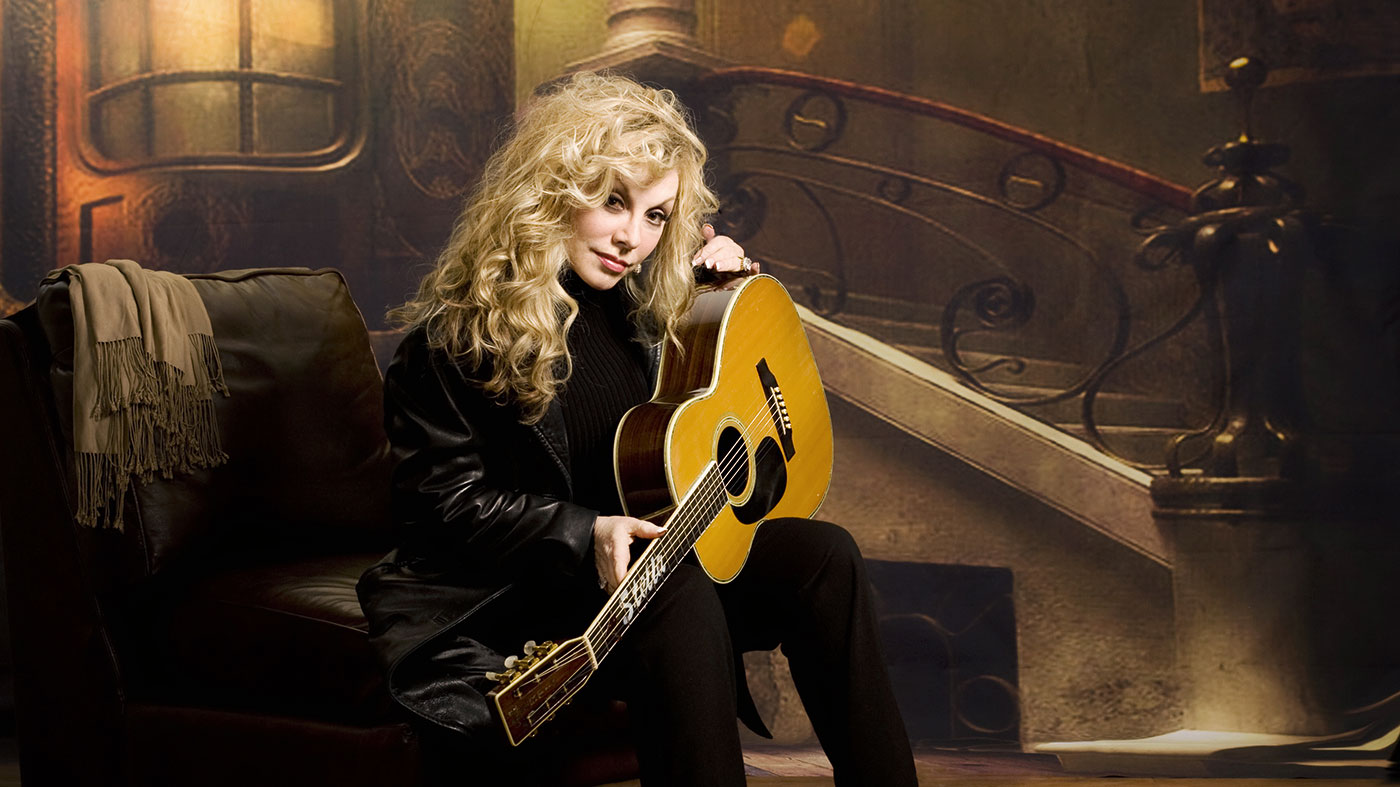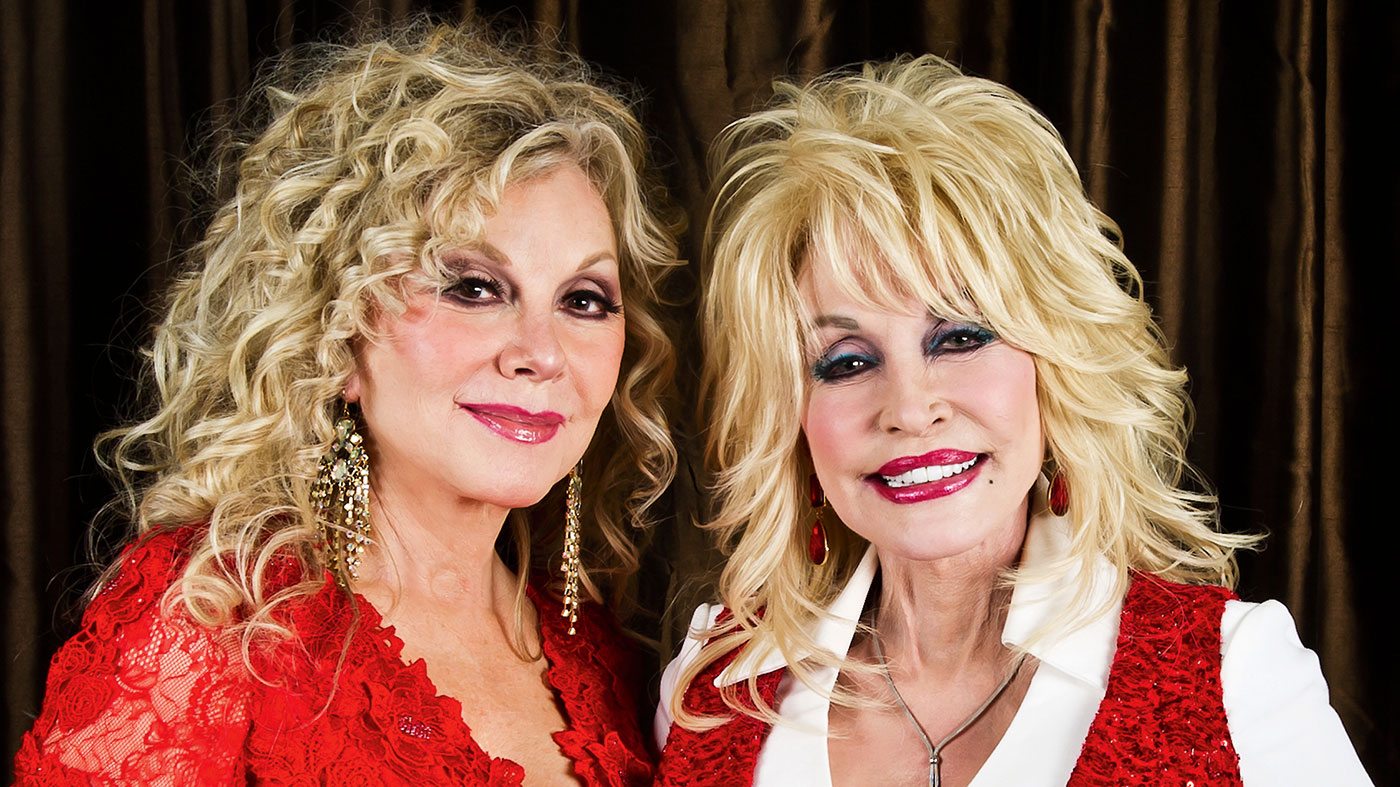Stella Parton on her independent spirit, custom acoustics and Dolly
The country icon talks Mountain Songbird

Stella Parton is a country music icon who took on the record labels and found huge success as an independent artist. Now the self-described ‘lone wolf’ is tackling her sister’s songs on a new album, Mountain Songbird.
It would be easy to assume that having an older sister who is a genuine megastar would make Stella Parton at least a little weary of being asked about Dolly. The truth could not be further from that assumption. Stella Parton is deeply proud of her sister’s achievements, hence the tribute album of Dolly’s songs that Stella has released - Mountain Songbird. It took some time to finish though, as Stella explains.
“This was a labour of love; it was not something I was contracted to do. I chose to do it on my own time when I had the time and the money to work on it. I produced the album myself and I selected musicians to work on it.
I was proud to be a left-hander because my daddy was a southpaw and I was the only girl out of six who was left-handed
“Some people would have other ideas, and I would pull away and tell them that it was not how I wanted the songs to sound. I decided to make it as pure as I could and keep it as uncomplicated as possible so that the songs come through. It’s not about me - although I think I interpret the songs as honestly and as well as I am able - it is about the songs, and that is the centrepiece of each track.
“I think if you have too much production, too many singers vocalising the story, then people can’t pick out the story, which is the most important thing. That is why I am happy to be talking to you about it because it is about being acoustic and keeping it simple and letting the listener hear the song how it’s supposed to be.”
Stella Parton grew up in a large family, with all the members playing instruments and singing, but she didn’t take up the guitar until her 20s - her left-handed approach proving a barrier to learning to play.
“I was proud to be a left-hander because my daddy was a southpaw and I was the only girl out of six who was left-handed, so I kinda waited my time. I always did my own thing anyway, so I have never felt left out of anything. I’ve always been a loner, and just gone my own way.
Want all the hottest music and gear news, reviews, deals, features and more, direct to your inbox? Sign up here.
“My first guitar of my own was one I had custom-made for me by a luthier called Randy Wood who had a shop in Nashville. He made it with a smaller body and a narrow neck because I have shorter arms and smaller fingers than a lot of people. I used it on the road for quite a while in the mid-70s and early-80s, it was my favourite guitar to play.
“Then I went on to Martin guitars. Martin made me a beautiful left-handed guitar that has pearl inlay down the neck and my name on it. I am very proud of that and I play it a lot. I will probably have it on the road with me when I come over to England, I usually manage to get it on and off planes without too much trouble.”
To call Stella Parton an independent spirit would be to understate her approach to her music and career
To call Stella Parton an independent spirit would be to understate her approach to her music and career, and more importantly, the male domination of country music - but more of that in a moment. First of all we need to talk about Stella founding her own record label to release her work. Back in 1975 independent labels were far more of a rarity than they are today, and for a woman to start a label was virtually unheard of.
“Well, I have always been a lone wolf in this industry and in my family, and I have always been known as a maverick, inside and outside my family. I started the label purely out of necessity because no one in Nashville would release my music because I was Dolly’s kid sister. I decided, to hell with all you guys, if you won’t put my music out on your record labels, I’ll start my own label, so I did. I called it Soul Country And Blues, and the initials spell the word ‘scab’, which is a slang term for a non-union studio session.
“My first top-10 Billboard hit single was a song called I Want To Hold You In My Dreams Tonight, and yes, it was very unusual for a woman to form a label and release music. I was branded as a maverick and talked about as such in the local press when they mentioned me. I must confess it stung a little bit because I had always been a shy and self-contained person, but then I decided to embrace the label, and just go about my business, and I have.

“I have released 35 albums and I have never had a single that hasn’t charted somewhere,” she adds. “I have never had massive sales because I am and always have been an indie artist, aside for the albums I made for the Elektra label [recently re-released on Man In The Moon Records]. I am proud to be an independent recording artist and to have released all my singles and have them chart, I think that is a success.”
Not surprisingly, the men who scoffed at the idea that Dolly Parton’s little sister could have musical success are the ones who now want to offer the helping hand that was singularly absent when she actually needed it.
“Well, even now when I have a project that’s going well, I get people coming to me and saying: ‘Why don’t you let us help you with that?’ And my response is: ‘I got this going on my own, why would I need your help now?’ So I just go about my business, and I am grateful that people appreciate the success I have had, and I have had the stamina and determination to withstand the exclusion of my industry.
“I think it’s not just because I am Dolly’s kid sister, I think it’s because I am a woman and I was a single mom by the time I was 23 and I had to make my own way. That meant that if I was going to have my own career I had to be determined and strong enough to stand the rejection, but to be honest, I don’t think too much about that these days, I dance to my own drum and I just let it go.”
Parton remains modest about her technical ability as a guitar player, however. “I was asked recently if I am a good guitar player, or a good-enough guitar player, and I do know that there is a difference. I’m not sure I would say I was either really. I play to write songs, but I wouldn’t say I was anything of a guitar player.
I am very proud of my sister and the work she does, but I don’t get up and brush her teeth and comb her hair, it’s my life I’m living
“I have a couple of my brothers who play guitar pretty well, but I certainly would never brag on my musicianship. I play the autoharp, the banjo, the mandolin and the guitar, but just to write songs. I play a little piano, but it’s something to work with to find keys and find chords and find melodies to write songs around.
“So no, I’m not going to sit and learn to play the guitar really well at this late stage, I probably wouldn’t be that good anyway! I’m never gonna have people sit in the audience and say: ‘Wasn’t that a great run she just played on the guitar?’ I just play to get my work done, and that’s why I hire a band.”
Stella Parton is an acoustic musician who is comfortable with who she is, what she has done, and what she is doing now, and she is completely aware of her place in the music world.
“Anyone who is in my position is going to have to learn to deal with the situation. I am very proud of my sister and the work she does - and I hope she is proud of me - but I don’t get up and brush her teeth and comb her hair, it’s my life I’m living.
“I know that critics don’t concern themselves with too much research and looking into who I am, so if they can grab something easy, that is what they will grab and make a story out of that. I accept it. I had to come to terms with that in my 20s, and I did. If I didn’t I would have gone back into the beauty salon and been fixing hair for the last 40 years, but I chose not to because I love doing this, and if people are going to come and see me and buy my music, then that’s fine, I’ll carry on.”

